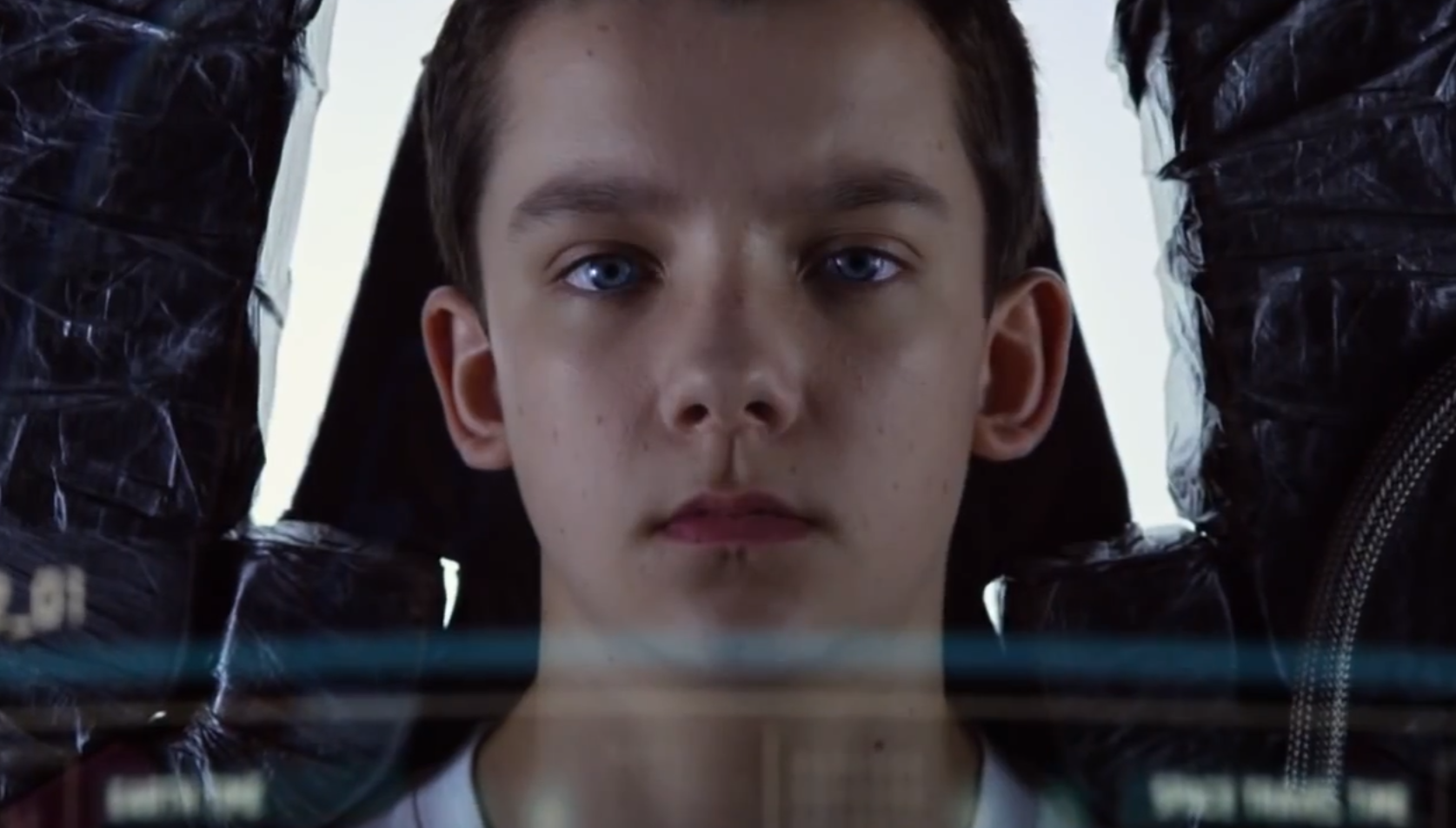Best to put it upfront— a few criticisms aside, as an adaptation of an unfilmable text with sophisticated moral consequences and unusually complex child characters, Ender’s Game shapes up as beautifully as any adaption could. All the key players are on their A-game, and for the second time in 2013, Harrison Ford appears gleefully determined and alive as Colonel Graff. His triumphant return to science fiction (Cowboys and Aliens: forgiven and forgotten) brought him a seemingly tailor made role for, and his under-tone gritty snarl has never sounded better. His screen presence conveys necessary authority and power without abandoning smidgeons of warmth when the script demands it. Not to dismiss the film’s many successes, but I suspect for many, seeing legend Harrison Ford remind viewers just why he’s so revered will indeed be the highlight of the picture-- it's his best since the 90's action classic Air Force One. He’s one of two integral roles that effectively ground an otherwise cerebral affair, and the filmmakers nailed the other 50% of casting by having the phenomenal rising star Asa Butterfield cast in the title role as the icy Ender Wiggin. He wowed in Hugo (2011) a few years ago, and delvers an fantastic, and fantastically different, performance. He morphed from a role of Spielbergian wonder fit for the lead star in a remake of E.T. into an internalizing, calculated boy in control of most of his faculties. Not only does he have to convey multiple emotions at once, which emotions dominate, and when, become a key part of both his arc and as well as the film’s as a social commentary. His skill as an actor is clear from the start, such as an early scene bullying where Asa submits to fear before reacting in aimed anger and ending the scene with equal sign of exhilaration and sorrow. It’s a tricky performance for an actor of any caliber, much less one halfway through puberty. At 16, he’s already certified leading man!
The cast sells Ender’s Game, and even if the rest of the actors don’t deliver great performances, their chemistry compensates. Although this is a big-budget popcorn spectacle opening in the increasingly lucrative month of November, and it dutifully earns that status with all the expected scenes of cgi overload, the tension and stakes are almost always planted firmly with the characters. In fact, the script treats the narrative as a character study even more than as an exhibition of the latest innovations in digital technology. It’s a powerful storytelling model, one which not only gave a pedestal upon which the leading stars can thrive, but one that injected a real sense of purpose to the training sequences. The specific moments of military schooling is a large part of why the novel was deemed unfilmable, with characters sitting in place playing trumped up video games for huge sections of screen time. “How do you do that?”, I’m sure the studios would ask. Director and writer Gavin Hood answers that question, “with the characters.”
However, no matter the skill of the adaptee, any adaptation of the source material will face inevitable issues in bringing book to screen. Orson Scott Card’s source material follows Ender’s evolution with an eye to detail a motion picture simply cannot afford, and as a consequence how Ender gets from point A to point B to point C becomes a blur. The viewer simply has to go along with Ender not only being a prodigy at marksmanship, but also a master strategist that also happens to be highly competent in martial arts. He outclasses everyone he meets in virtually every area. It’s a lot to take in, and like the 2012 adaptation of The Hunger Games, the narrative glosses over key plot points and character beats as though the whole audience has read the source text.
Hood asks the viewer to take more than one huge leap along the way, and while the visuals are indeed impressive, sometimes extremely so (the anti-gravity room matches and final training session are admittedly sensational), they can’t compensate for alienating Ender from the audience for the same reason he’s alienated by his fellow classmates: he comes off as a punk know-it-all kid that’s two parts Hermione and one part Episode II Anakin Skywalker. In the book, Ender’s behaviors are perpetually manipulated by Colonel Graff to push him further and further away from his quote-unquote humanity, and more towards becoming a perfectly militarized tactician, but by making that plot point much less a focus, Ender comes off as the lost member of The Avengers. It’s unclear how the narrative could be effectively reshape to include vital lost content, but without a generous extension in running time, it may not have been possible. For that reason, Hood’s adaptation of Ender’s Game likely serves as the best adaptation we’re likely ever going to see of the famous book read in high schools across America, and thanks to great casting, smart social commentary, cool sci-fi visuals, and a potent final fifteen minutes, it’s a success.
B-


